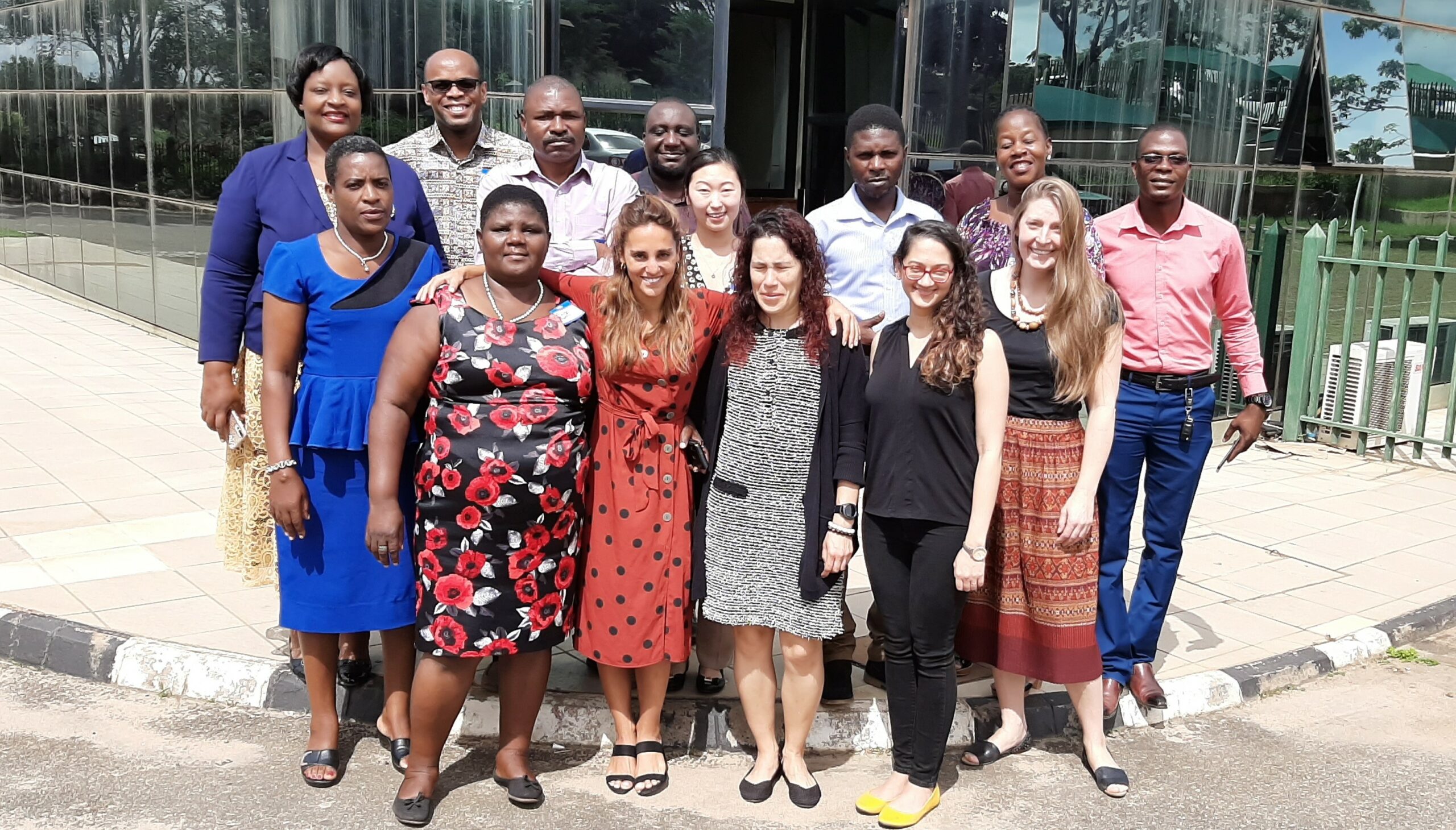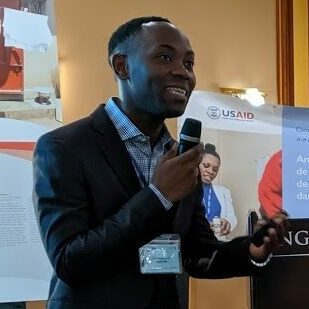Panagora Supports Transition to New, Streamlined Global Platform for Managing Reproductive Health Supply Chains
Panagora is proud to be part of the implementation of a state-of-the-art platform that consolidates inventory, supply, and near real-time order and shipment data to facilitate more robust data management and visibility, enabling countries to manage their contraceptive supply chains more efficiently and effectively. The Global Family Planning Visibility and Analytics Network, known as the VAN, ultimately gets more affordable reproductive health supplies into the hands of women and girls and helps increase contraceptive security worldwide.
Getting contraceptive supplies to where they are needed has always been a global challenge.[1] Until recently, the procurement and tracking of reproductive health supplies globally was managed through multiple initiatives under different organizations.
Panagora employees Chiedu Ezeadum and Tamah Kamlem previously worked on one of those initiatives under the USAID Global Health Supply Chain Program-Procurement and Supply Management (GHSC-PSM) project, where they oversaw a contraceptive and procurement monitoring and planning tool called the Procurement Planning and Monitoring Report (PPMR), through which countries shared inventory data.

Chiedu Ezeadum (top row, second from left) and a team of newly trained VAN “Super Users” in Malawi in February 2020.
Because of their expertise, Ezeadum and Kamlem were seconded as Control Tower Country Data Analysts to the VAN, where they have been pivotal in the transition to this new, consolidated platform. The VAN is managed by the Reproductive Health Supplies Coalition (RHSC), a global partnership of public, private, and non-governmental organizations working together to increase contraceptive access to low- and middle-income countries.
Ezeadum and Kamlem are now skillfully guiding countries to get oriented to and fully implement the new platform, ensuring long-term country-ownership and sustainability of the system. They, and other VAN Control Tower Analysts, support countries in their use of the VAN with technical assistance that includes uploading country supply chain data and supply plans, identifying supply chain issues and solutions, and conducting forecasting. They also train country government staff to fully utilize the system.
“The VAN is a ‘one-stop shop’ for managing reproductive health supplies that brings together country governments, regional health organizations like the West African Health organization (WAHO), funders such as USAID and UNFPA, implementing partners, manufacturers, and suppliers for joint, informed decision making,” explains Kamlem. “This helps countries strengthen supply planning and more equitably distribute products that have limited global supply, avoiding stockout and the related health consequences for clients.”
Work local, think global
Throughout this process, our team’s technical expertise and deep understanding of different cultural contexts has helped ensure success, ultimately leading to better health outcomes for women and families and saving millions of dollars.

Tamah Kamlem leading a VAN training in Senegal in 2019.
Ezeadum and Kamlem are from Nigeria and Cameroon respectively and now live in the Unites States. They speak multiple languages and have traveled in multiple countries in their work. They are truly global citizens with a myriad of cultural contexts that have helped them to understand the needs and sensitivities of different countries as they help implement this new tool. “We have developed productive relationships with country officials and partners and have customized our approach to onboarding for each country,” says Ezeadum.
“For example,” continues Ezeadum, “our understanding of how quickly countries can assimilate new information and adapt to new processes allows us to moderate the pace of the onboarding process. This helps ensure a country’s buy-in and successful adoption of the platform,” he explains, ultimately ensuring the VAN has the greatest impact on managing reproductive health supplies and, ultimately, getting them into the hands of clients. Indeed, relationships, partnerships and mutual trust are key hallmarks of the VAN’s unique model, contributing to its successful, groundbreaking work; Ezeadum and Kamlem’s skills have made a valuable contribution to this model.
Looking forward
VAN member countries now have full visibility into real-time order and shipment information. If an issue arises, countries alert VAN partners simultaneously through the platform, enabling a faster response with direct intervention to avert stockout.
Ethiopia, Ghana, Malawi, and Nigeria were pioneer country members of the VAN and thanks to Ezeadum and Kamlem’s work, there are a lot more countries that are now part of it or are getting onboarded, including countries in Africa, Asia, the Caribbean, and the Middle East.
The vision for the VAN, as Ezeadum describes, “is to bring more manufacturers on board to allow countries and other stakeholders to place orders for reproductive health supplies directly. This will be a real innovation in reproductive health supplies management.”
Panagora is committed to developing and collaboratively working on long-term innovative solutions that build on evidence-based approaches with the ultimate goal of building country ownership and capacity. We are proud to be part of the implementation of the VAN, which will ultimately get more affordable reproductive health supplies into the hands of women and girls and help increase contraceptive security worldwide.
[1] Contraceptive security is the ability to choose and acquire high-quality and affordable contraceptive methods as needed for family planning and prevention of sexually transmitted diseases. Populations with higher contraceptive security generally have improved health and economic opportunities for women and children and see higher rates of education for girls in particular.
1 New comments
Idea excellent, I support.